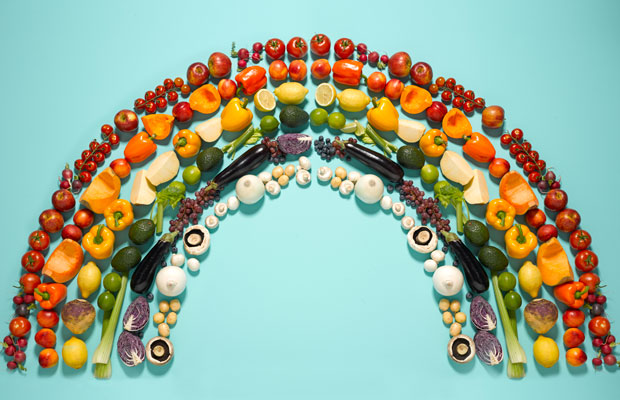
Achieving a balanced and nutritious diet is essential for overall well-being. By incorporating the right nutrients into your daily meals, you can enhance your health, boost energy levels, and support your body's functions. Here's a guide on how to seamlessly integrate nutrition into your diet for a healthier lifestyle.

Ensure your meals are visually appealing by incorporating a variety of colorful fruits and vegetables. Different hues signify various nutrients, so aim for a rainbow on your plate. Include leafy greens, vibrant berries, orange carrots, and red peppers to maximize nutritional benefits.
Choose whole foods over processed alternatives to maximize nutrient density. Whole grains, lean proteins, and fresh produce provide essential vitamins, minerals, and fiber without the additives found in processed foods. Opt for whole, natural options to fuel your body with quality nutrition.
Achieve balance in your diet by incorporating adequate proteins, carbohydrates, and healthy fats. Protein sources like lean meats, beans, and nuts support muscle health. Complex carbohydrates, found in whole grains and vegetables, provide sustained energy, while healthy fats from avocados and olive oil support heart health.
Practice mindful portion control to avoid overeating. Focus on the quality of your food rather than quantity. Pay attention to hunger and fullness cues, and savor each bite. This approach promotes a healthier relationship with food and helps prevent unnecessary calorie consumption.

Stay hydrated by making water your beverage of choice. Adequate water intake supports digestion, nutrient absorption, and overall well-being. Aim to drink at least eight glasses of water daily, and more if you engage in physical activities.
Opt for nutrient-dense snacks to curb hunger between meals. Consider options like Greek yogurt with berries, a handful of nuts, or sliced vegetables with hummus. These choices provide essential nutrients and help maintain steady energy levels throughout the day.
Take control of your nutrition by planning your meals in advance. Prepare a variety of nutrient-rich meals, ensuring a balance of proteins, carbohydrates, and vegetables. Having pre-made, healthy options readily available reduces the temptation to reach for less nutritious alternatives.
Enhance the taste of your meals without compromising nutrition by experimenting with herbs and spices. Fresh herbs like basil and cilantro, along with spices such as turmeric and cumin, not only add flavor but also contribute antioxidants and anti-inflammatory properties.
Reduce your intake of added sugars by opting for natural sweeteners like honey or maple syrup in moderation. Be vigilant about hidden sugars in processed foods and beverages, as excessive sugar consumption can contribute to various health issues.

Practice intuitive eating by listening to your body's signals. Eat when hungry and stop when satisfied. This approach fosters a healthy relationship with food, promoting mindful choices based on your body's actual needs.
Diversify your protein sources by incorporating plant-based options such as beans, lentils, tofu, and quinoa. Plant proteins offer essential amino acids and can be a valuable part of a balanced diet, supporting both your health and the environment.
Stay informed about your nutritional needs by educating yourself on the fundamentals of a balanced diet. Understand the role of different nutrients in supporting overall health and tailor your meals accordingly.
Consider supplements to fill potential nutritional gaps, but do so judiciously. Consult with a healthcare professional to determine if specific supplements, such as vitamins or minerals, are necessary based on your individual health needs.
Embark on a culinary adventure by exploring global cuisines. Different cultures offer diverse ingredients and cooking methods that can introduce a wide array of nutrients to your diet. Experimenting with international flavors can make healthy eating exciting and enjoyable.

Periodically assess your dietary choices and make adjustments as needed. Consider factors like energy levels, mood, and overall well-being. This reflective approach allows you to tailor your nutrition to meet your evolving health goals.
Incorporating nutrition into your diet is a holistic approach that goes beyond calorie counting. By embracing a variety of nutrient-dense foods, practicing mindful eating, and staying informed about your body's needs, you can create a sustainable and nourishing dietary lifestyle. Remember, it's not just about what you eat but how you nourish your body for long-term health and vitality.
Disclaimer: SPIRITUAL DEVOUT claims no credit for images featured on our blog site unless otherwise noted. All visual content is copyrighted to its respectful owners.